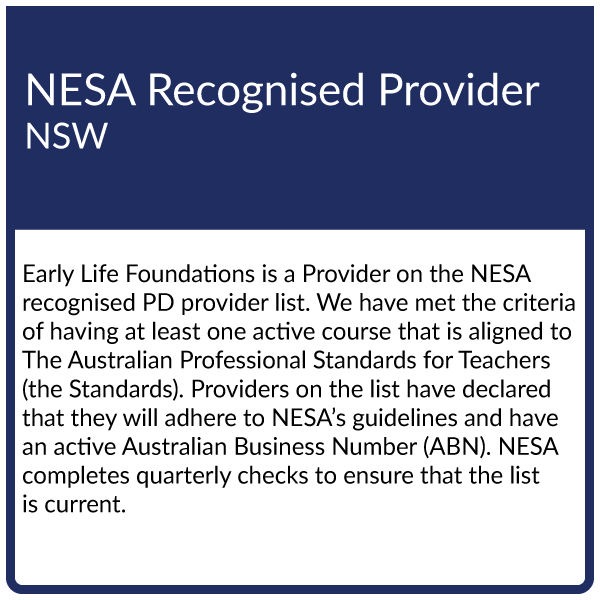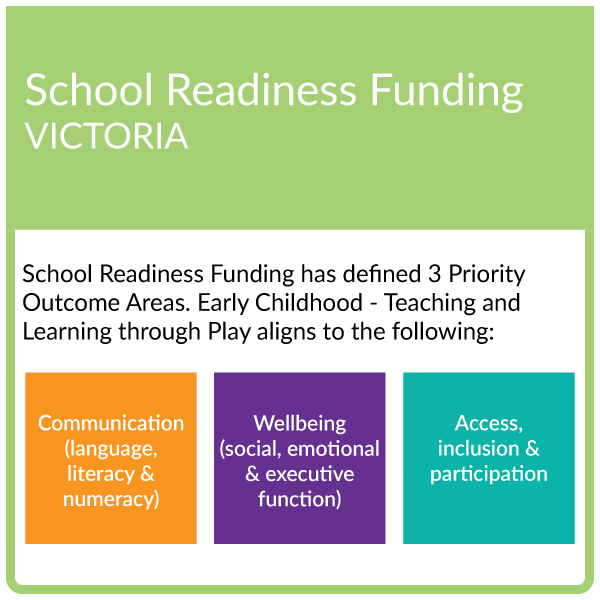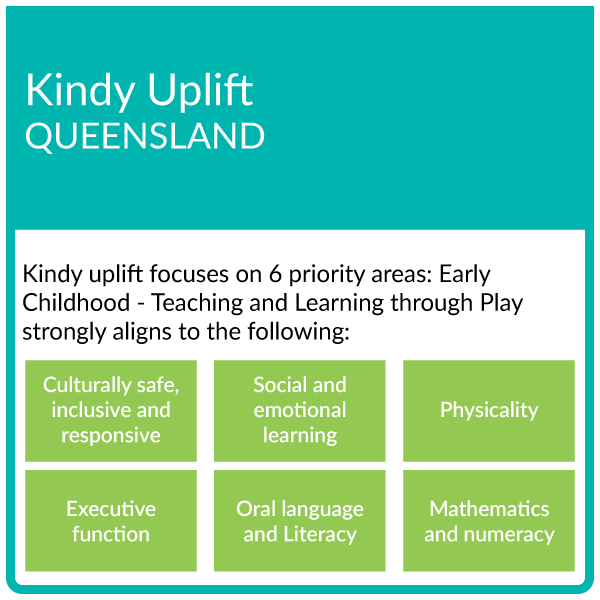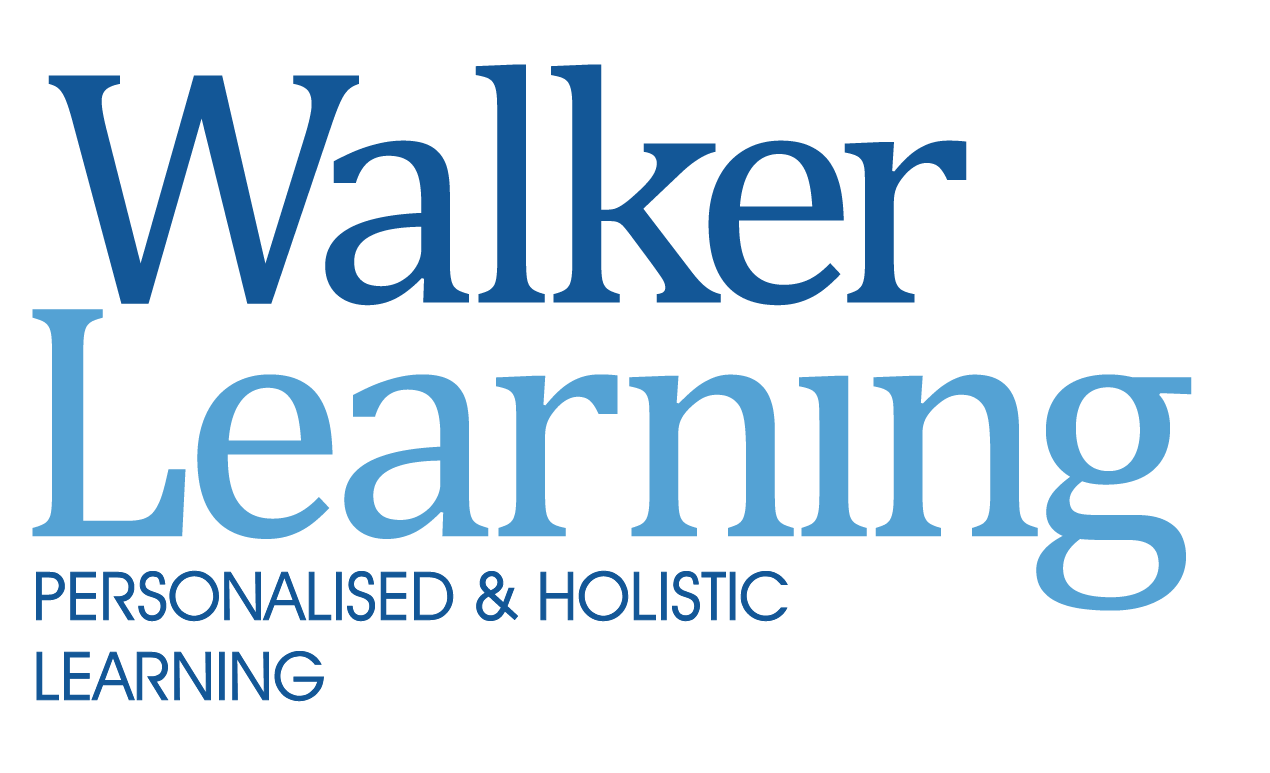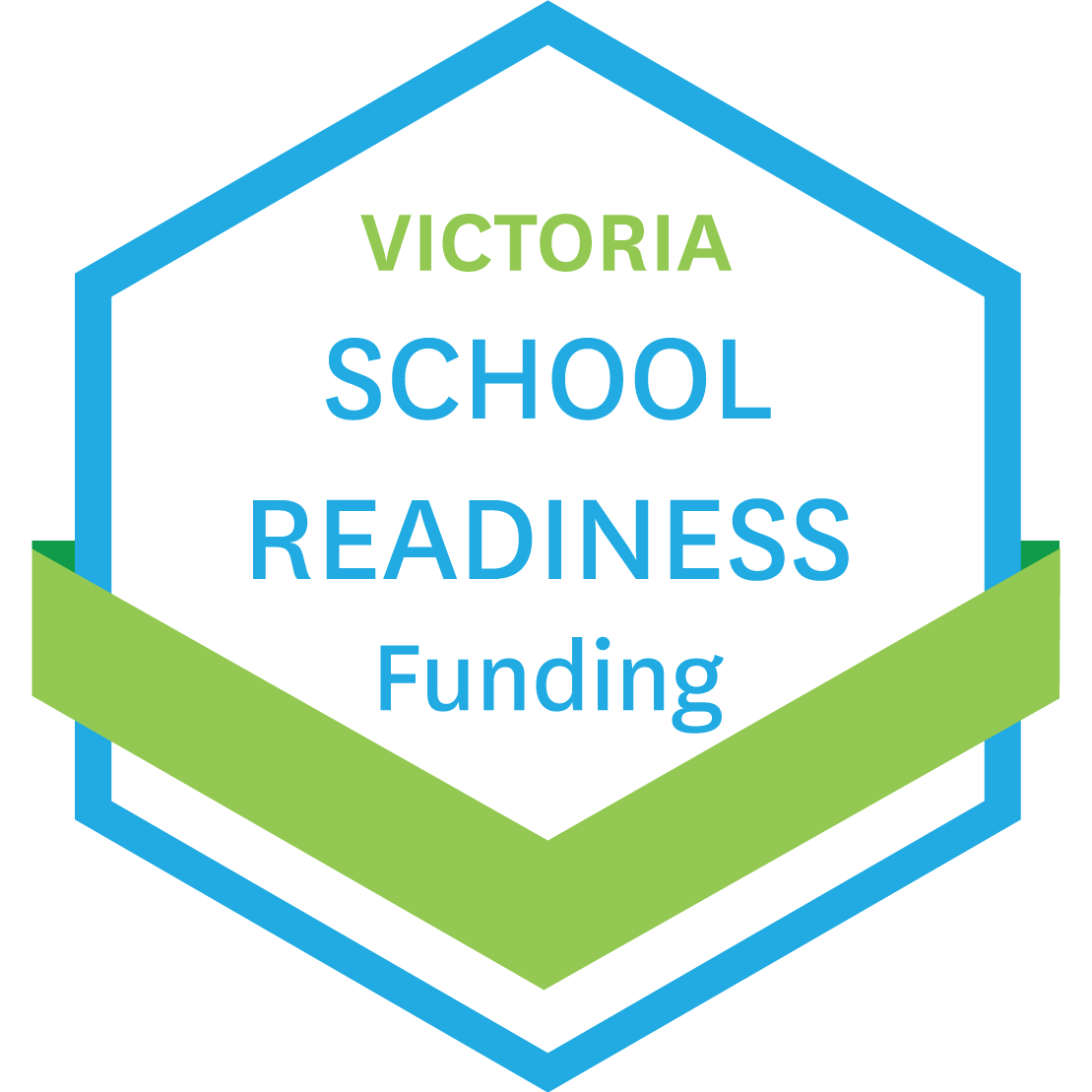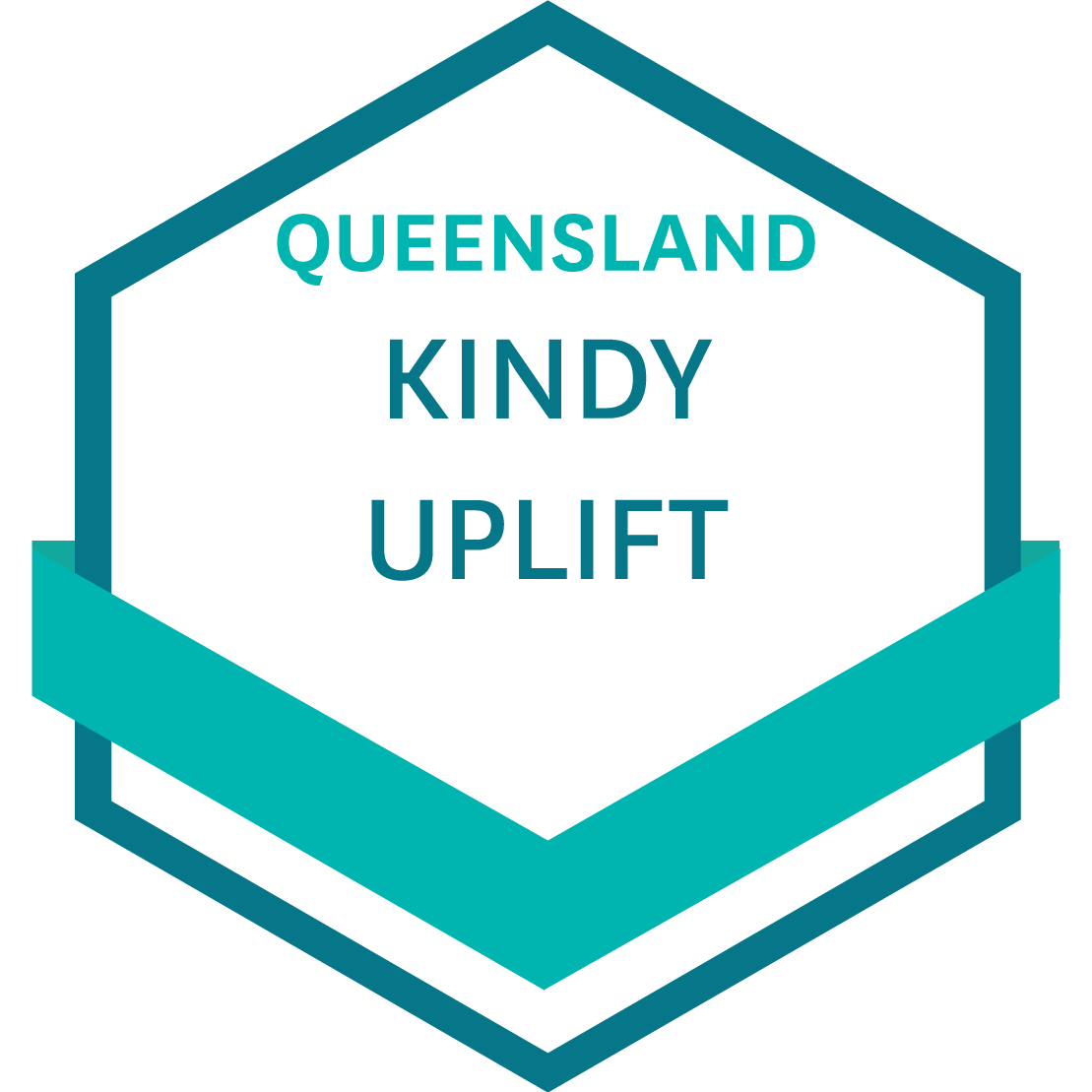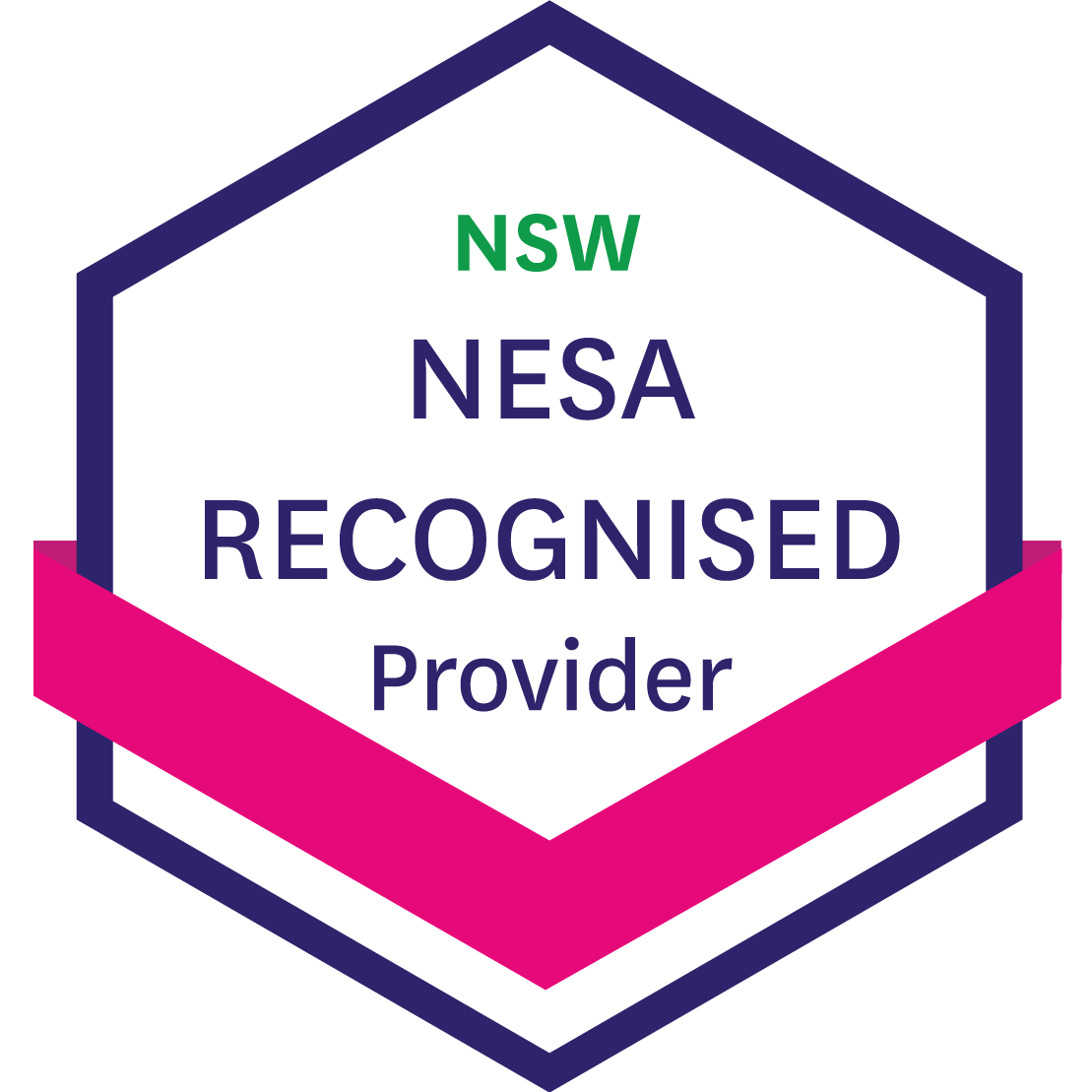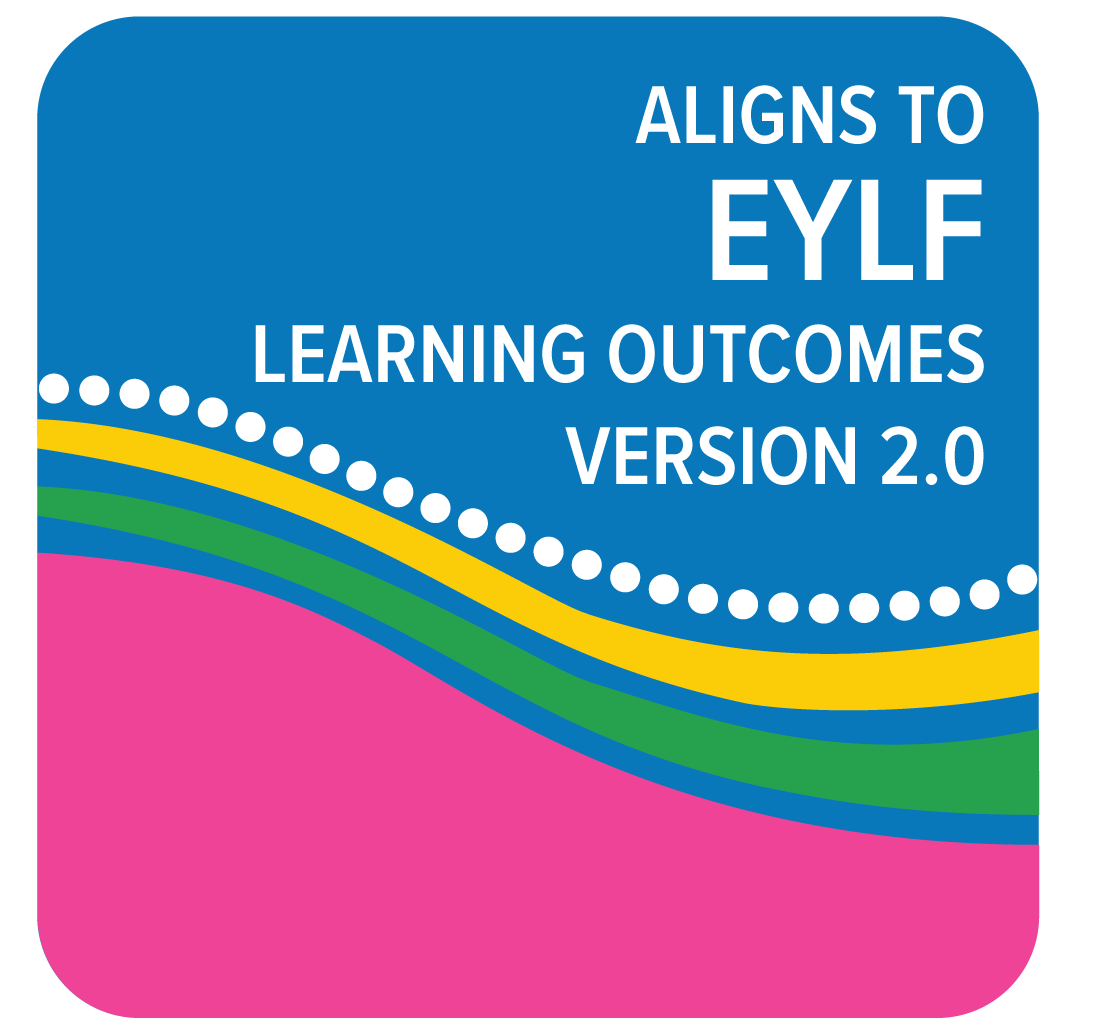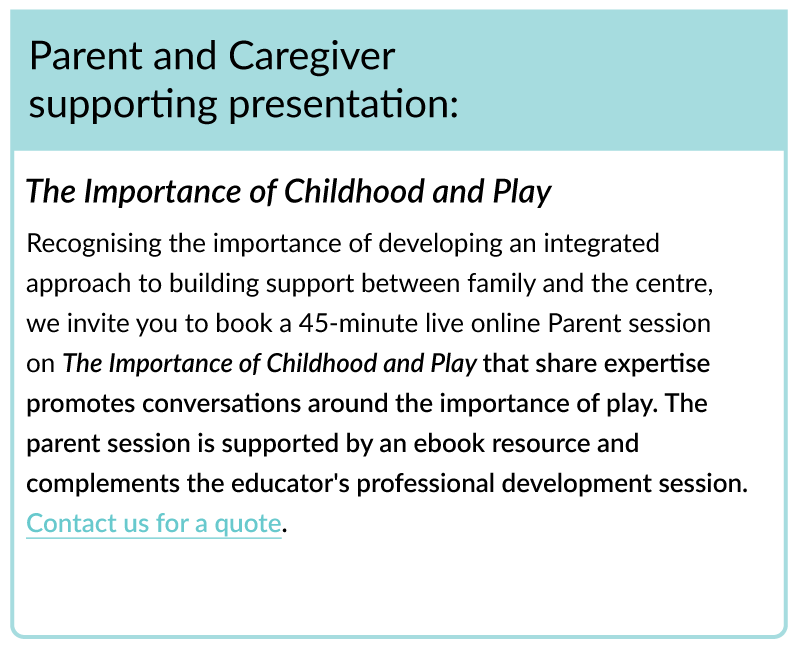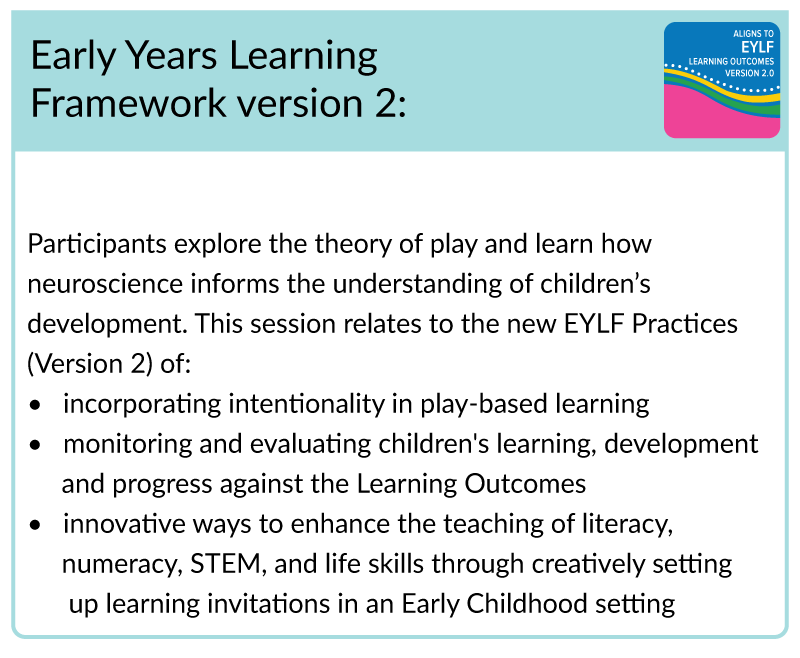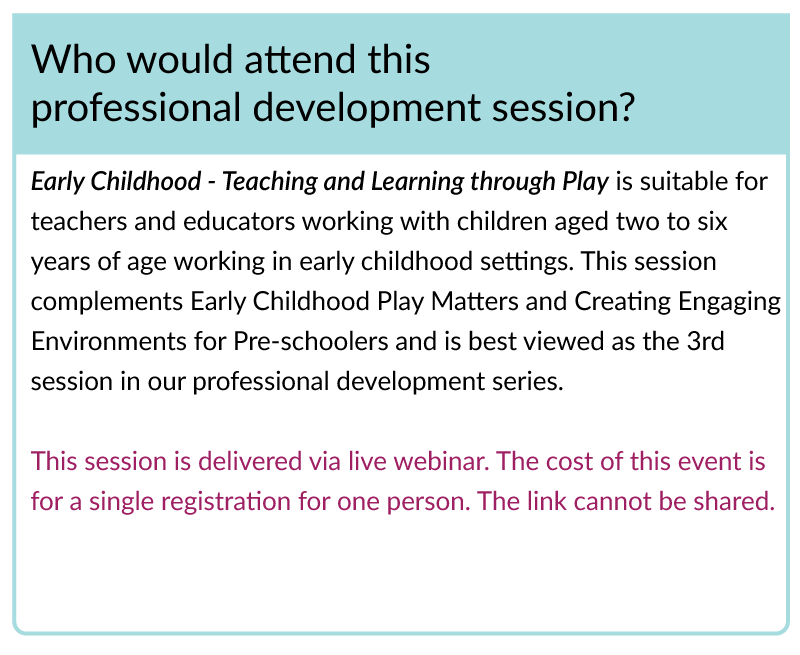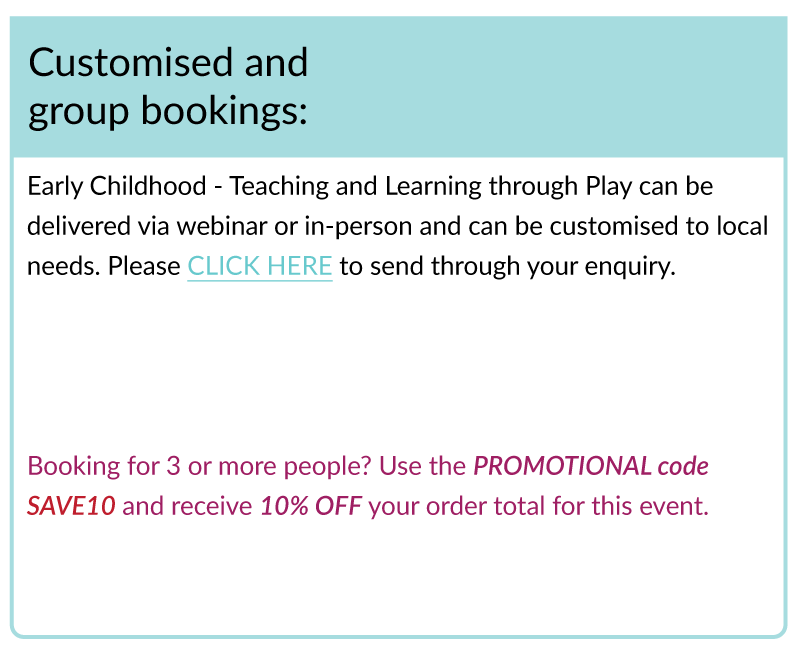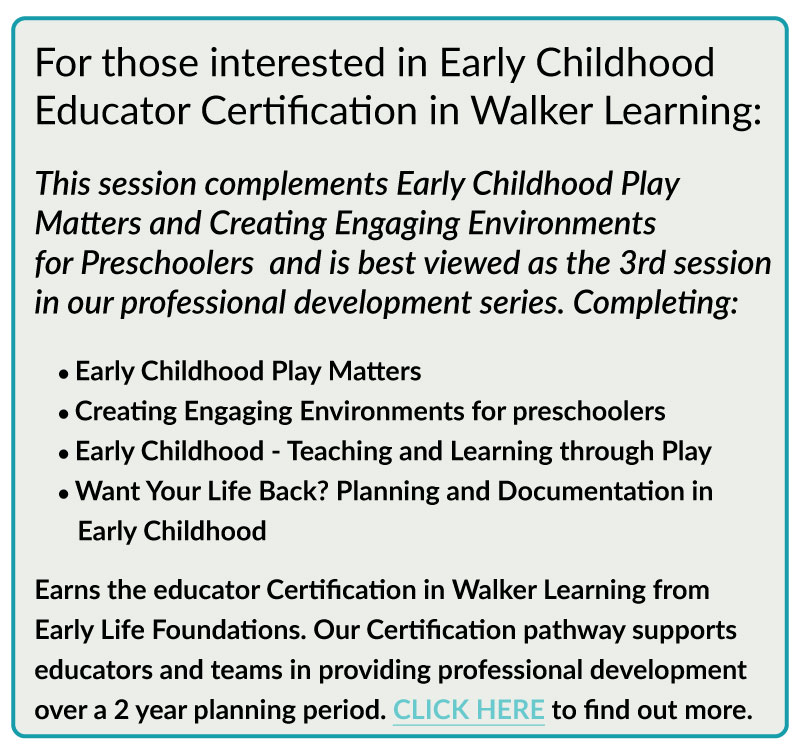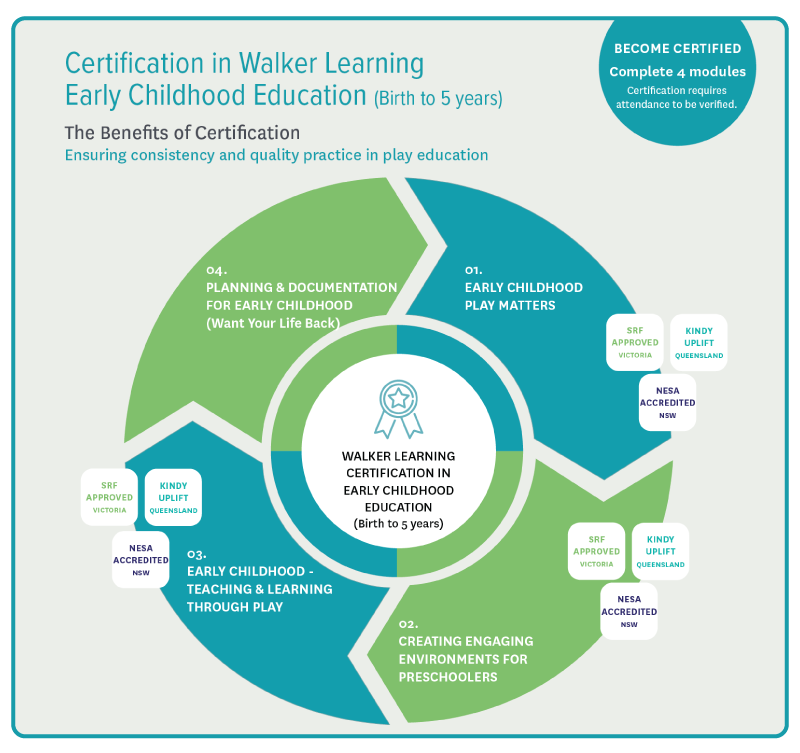Early Childhood - Teaching & Learning through Play looks at child development in more detail and explores the importance of connection with families as well as building skills and confidence to involve and communicate effectively with parents.
Live online events
Description
Early Childhood - Teaching and Learning through Play
What you will learn from this session:
We are delighted to bring you Early Childhood - Teaching and Learning through Play to deepen understanding and provide inspiration to teachers, leaders and educators in Early Childhood settings. We explore the importance of reflective and responsive practice, creating quality environments, intentional teaching and observing, analysing and monitoring children's progress in all areas. This session can be viewed as a stand alone professional development session or can be completed in conjunction with the sessions outlined in our Certification pathway. Our Certification pathway can assist teams choosing to implement a 2 year planning timeframe.
By attending Early Childhood - Teaching and Learning through Play you will:
- Observe best practice in-action from a variety of Australian Early Childhood settings. We view video footage that showcases examples of how to build children’s capacity for literacy, numeracy and rich language opportunities.
- Build educators skills that support children’s vocabulary, listening and comprehension skills, phonemic awareness, concepts of print and early literacy.
- Build educators skills to support children’s numeracy and mathematical skills and concepts.
- Develop a deeper understanding of child development in the 2 to 6 year-old age range ensuring that learning environments nurture relationships, social skills and high quality interactions with others to create strong foundations for wellbeing, communication and resilience.
- Experience holistic environments that promote children’s social and emotional learning and the importance of positive, safe, secure and respectful relationships.
- Develop age appropriate strategies for improving focus, working memory, perseverance and resilience through the provision of physical, social, emotional and neurological development. All of which support fine and gross motor development.
- View a pedagogical approach that reflects cultural, demographic, economic and social factors taking into consideration equity, diversity and inclusion in their own context.
- Explore the importance of relational pedagogy and meaningful connection with families, caregivers and educators to support children’s learning and sense of belonging.
- Enhance educator skills and confidence to involve and communicate effectively with parents, caregivers and families.
- Opportunities for guided professional conversation and discussions around play-based pedagogy and priority areas of wellbeing, communication and inclusive practice concludes the session.
Participants will view segments of video footage and commentary of pedagogy 'in action' through a virtual study tour of early childhood settings showcasing examples of play-based learning and examples of Walker Learning core elements introduced in Early Childhood Play Matters.
** Please note: this session was previously called Early Childhood - Play in Action
